Korea Pursues 'Look to Asia Policy'
Govn't seeks to hold the Korea-Central Asia Summit following the successful hosting of the Korea-ASEAN Commemorative Summit on Jeju
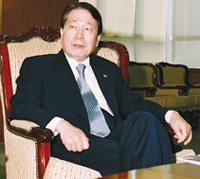 Minister of Foreign Affairs and Trade Yu Myung-hwan said the government is considering holding the Korea-Central Asia Summit as soon as possible as part of efforts to follow up on the "New Asia Initiative" declared by President Lee Myung-bak in Malaysia this past March.
Minister of Foreign Affairs and Trade Yu Myung-hwan said the government is considering holding the Korea-Central Asia Summit as soon as possible as part of efforts to follow up on the "New Asia Initiative" declared by President Lee Myung-bak in Malaysia this past March.
"The Korea-ASEAN summit turned out to have made achievements in fleshing out Korea's "New Asia Initiative," designed to step up cooperative mechanisms in diverse countries in the Asian region, based on Korea's successful diplomatic achievements with its four neighboring countries. The initiative is Korea's new diplomatic policy aimed at substantiating strategically cooperative ties with Korea's four neighboring countries ¡ª the United States, China, Japan and Russia ¡ª while ramping up practical cooperative mechanisms with key Asian partners, which account for some half of Korea's external trade," Minister Yu said.
The following are excerpts of an interview with NewsWorld and Minister of Foreign Affairs and Trade Yu, who spoke about the outcomes of the recent ASEAN+3 Foreign Ministers' Meeting and EAS Foreign Ministers' Meeting as well as his ministry's policies, including the possible revision of the Korea-U.S. Nuclear Cooperation Agreement.
Question: What are the outcomes of the ASEAN+3 and EAS foreign minister's meetings?
Answer: The ASEAN+3 Foreign Ministers' Meeting and the EAS Foreign Ministers' Meeting that took place in Phuket, Thailand, on July 22 were considered opportunities not only to maintain the momentum to solidify ties between Korea and ASEAN in the wake of the Korea-ASEAN Commemorative Summit, but also to spotlight Korea's leading roles in cementing cooperation in the East Asian region and tackling global issues.
The participating ministers at the two meetings exchanged views on regional and international issues, including the North Korean nuclear issue.
Voicing concern over a nuclear test and missile launches by North Korea, the participants urged Pyongyang to comply with the relevant U.N. resolution and Six-party agreements and return to the Six-party talks as soon as possible, which was contained in the ASEAN+3 Foreign Ministers' Chairman's Statement and the EAS Foreign Ministers' Chairman's Statement.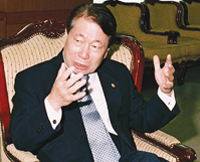
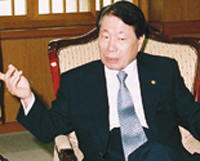
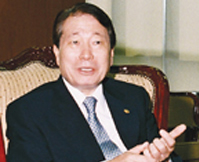
The participants of the two meetings discussed ways of promoting regional cooperation in addressing such global issues as financial cooperation, climate change, disaster management, tackling the new influenza and food and energy security. In particular, they positively recognized that the agreement drawn to expand the Chiang Mai Initiative Multilateralization Fund has laid a foundation for financial stability in the region and they agreed to continue joint efforts toward the early launching of the fund. In the meantime, Korea reaffirmed that as one of next year's G20 co-chairs it is committed to helping overcome the global economic and financial crisis and stressed the importance of implementing the agreements reached at the G20 Summit held in London in April.
Q: Will you explain the outcome of the Korea-ASEAN Commemorative Summit?
A: The Korea-ASEAN Commemorative Summit held on Jeju Island on June 1-2 served as an occasion to elevate relations between Korea and ASEAN, which have been developing since the establishment of their Dialogue Partnership in 1989.
During the summit, both sides signed the Korea-ASEAN Investment Pact to complement the conclusion of the Korea-ASEAN Free Trade Agreement (FTA). The participating heads of state agreed to expand the bilateral trade volume to $150 billion by 2015, ushering in a new chapter in economic and trade relations between Korea and ASEAN.
Our government proposed a policy statement on development cooperation, a policy statement on cultural and personnel exchanges and a policy statement on low-carbon, green growth, and the participating heads of state affirmed their determination to step up cooperation between Korea and ASEAN in such areas as development cooperation, culture and personnel exchanges and low-carbon, green growth.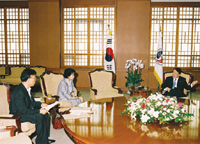
Meanwhile, as North Korea conducted its second nuclear test on May 25 just before the summit, Korean President Lee Myung-bak and ASEAN leaders, considering the urgency of the situation, adopted a joint communique confirming that the nuclear test violated the Six-party agreement and U.N. resolution and supporting the early resumption of the Six-party talks.
The Korea-ASEAN summit turned out to have made achievements in fleshing out Korea's "New Asia Initiative," designed to step up cooperative mechanisms in diverse countries in the Asian region, based on Korea's successful diplomatic achievements with its four neighboring countries. The initiative is Korea's new diplomatic policy aimed at substantiating strategically cooperative ties with Korea's four neighboring countries ¡ª the United States, China, Japan and Russia ¡ª while ramping up practical cooperative mechanisms with key Asian partners, which account for some half of Korea's external trade.
The Korean government plans to step up contributions to ASEAN countries, the pivots of the New Asia Initiative, and establish a faithful partnership for Asia's prosperity and development through strengthened practical economic cooperation and expanded official development assistance with ASEAN member countries. In accordance with the initiative, Korea plans to expand its official development assistance (ODA) to ASEAN countries to about $400 million by 2015, twice that of 2008.
Q: Will you elaborate on the "Global Korea" strategy to raise its nation brand?
A: As Korea, once one of the poorest countries in the world, has achieved rapid economic growth in a short period of time, the nation has become a member country of the Organization for Economic Cooperation and Development (OECD). Korea is also rated to be an unprecedented state that has achieved a mature democracy together with economic growth.
Despite the economic and political achievements, Korea's nation brand in the world still fall behind and some negative images of Korea have caused the "Korea Discount" phenomenon.
In order to aggressively tackle this woe, the government, which established the Presidential Council on Nation Branding early this year, is working toward the promotion of the nation brand, "A state making contributions to international society and showing kindness and maturity," in such areas as contribution to international society, settlement of society with multinational cultures, culture/tourism, IT development and promotion of a mature citizenship.
The MOFAT recently established a "Global Korea" promotion plan following plans for the integrated brand "Overseas Korean Volunteers" and the establishment of an overseas Korean expatriate integrated network. The "Global Korea" promotion plan calls for strengthening contribution diplomacy through increased ODA and expanded participation in PKOs and promoting cultural diplomacy by making overseas Korean missions centers for nation branding.
Korea's ratio of ODA to gross national income (GNI) is predicted to rise from the current 0.09 percent to 0.25 percent in 2015. Korea will also actively participate in future discussions on establishing international standards in the development assistance area through its accession to the OECD's Development Assistance Committee (DAC) in 2010 and the hosting of the 4th High Level Forum on Aid Effectiveness (HLF-4) in 2011.
The Korean government will contribute to the international community in a more efficient and rapid way by enacting the PKO law and holding an international conference on PKO in 2010. Also, it will enhance national credibility by fulfilling its obligation to pay contributions to international organizations more faithfully in the future.
Lastly, in an effort to make overseas Korean missions centers for nation branding, the government will not only improve the interior design of antiquated overseas missions using traditional Korean materials, including traditional Korean paper, but will use the missions as forward bases for the globalization of traditional Korean cuisine by upgrading tableware.
Through the nation brand promotion plan, the government is making efforts to establish Korea's national standing corresponding to our economic and political developments.
Q: Will you touch on the 3rd Korean Day?
A: The government designated Oct. 5 as Korean Day in 2007 after accepting a suggestion from overseas Koreans communities on the need for the establishment of an official commemoration day for overseas Korean residents and has held its commemoration ceremony and other events since 2007. Among several events involving overseas Koreans being held in Korea, the Korean Day anniversary event is presided over by the government due to its representation and symbolization.
The 3rd Korean Day anniversary event will feature an official government ceremony to be held on Sept. 30, a seminar on overseas Koreans policies, a university symposium inviting prominent overseas Koreans and other diverse events.
The government is preparing to hold the Korean Day event so that its focus on pushing mutual development between overseas Koreans and their motherland can be attained.
We expect the Korean Day event to serve as an occasion for our people to have a familiar feeling toward overseas Koreans and for overseas Koreans to love their motherland more wholeheartedly.
Q: Will you tell us about a plan to build a network for integrating overseas Koreans?
A: In an era of globalization, it is significant in diverse perspectives to make a network among overseas Koreans in several districts and fields, linked under a wider organic framework.
The facilitation of the network will contribute to the development of overseas Korean communities by stepping up their own capacity, and it will lay a foundation for promoting mutual development between their motherland and overseas Korean communities.
The government's integrated network project aims at building an on-line integrated network to connect 7 million overseas Koreans across the world. Inter-ministry support and overseas Korean communities' voluntary collaboration and support are necessary to attain this goal. The project calls for building an on-line Korean brethren network, a cyber hansang (Korean businessmen) network and an integrated who's who database.
Q: Will you comment on a plan to hold negotiations on the Korea-U.S. Nuclear Cooperation Agreement?
A: Given the Korea-U.S. Nuclear Cooperation Agreement, which is to expire in March 2014, both sides agreed to start negotiations on the revision of the Agreement this year. During the 29th meeting of Korea-U.S. Joint Committee on Nuclear Energy Cooperation held in October 2008, both sides held a preparatory meeting between diplomatic authorities of both countries regarding the revision of the Agreement and agreed to hold the first round of negotiations on the issue in the United States in 2009.
The upcoming talks on the revision of the Agreement will build a new framework to develop Korea-U.S. cooperation of the past 40 years in the nuclear energy field into more mature, forward-looking and mutually beneficial nuclear cooperation.
The Korean government plans to work out its own draft text of the Agreement and establish negotiation strategies while consulting with the U.S. side to hold the first meeting on the revision of the Agreement as soon as possible. Korea strives to raise global trust of its commitment to nuclear nonproliferation and publicize its nuclear energy technology levels in order create the atmosphere more favorable to the negotiations with the United States. nw
Minister of Foreign Affairs and Trade Yu Myung-hwan
Minister Yu gestures during an interview with NewsWorld.
Minister Yu explains his ministry's new policies on Asia during an interview with NewsWorld staff including Publisher-President Elizabeth M. Oh.
3Fl, 292-47, Shindang 6-dong, Chung-gu, Seoul, Korea 100-456
Tel : 82-2-2235-6114 / Fax : 82-2-2235-0799